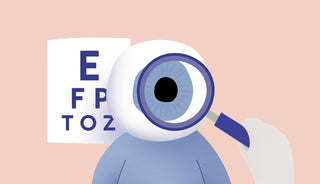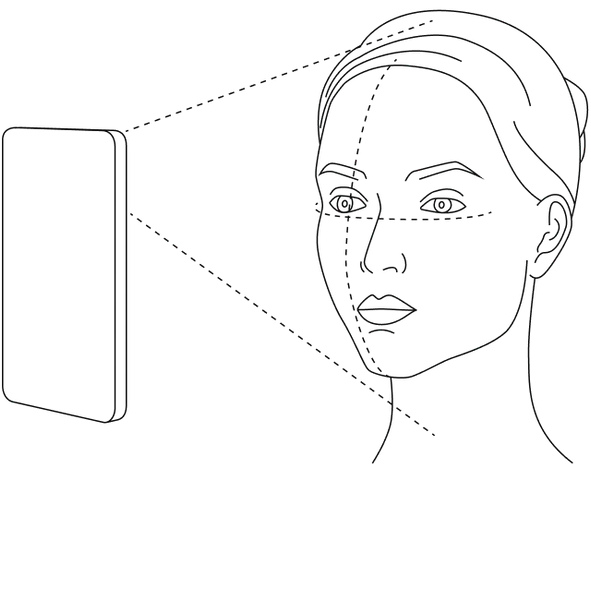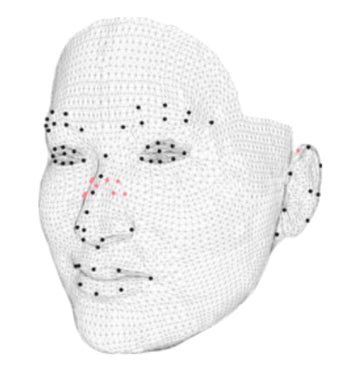Blue light protection is all the rage, but what exactly is it? Blue light is a natural light emanating from the sun and emitted artificially by digital screens. In its natural form, blue light can be hugely beneficial, but too much screen time has the opposite effect. Without the proper protection from your computer, phone and tablet screens, you are more likely to suffer from eye strain, migraines and sleeping difficulties. That’s where our blue light protection lenses come in! Read on to find out what blue light is, the benefits of blue light in its natural form, and how blue light lenses can help you eliminate the wrong kind of blue light exposure.
What you'll learn:
- Effects of overexposure
- Tips for protecting your eyes
- How do blue light blocking glasses help
- What is blue light
- What are the benefits
What are the effects of overexposure to artificial blue light?
Artificial blue light is emanated from LED and fluorescent lights as well as digital screens. Nowadays we can easily disrupt our natural sleep-wake cycle by keeping our eyes peeled to our screens long after sunset when melatonin production usually takes over. This can alter our natural sleeping patterns and affect our mood quality and ability to focus. Moreover, keeping a fixed gaze on an unfiltered screen for an extended period of time can trigger eye strain and headaches in some. Find out more on how to prevent eye strain.
Tips for protecting your eyes
Here are 10 tips for protecting your eyes against blue light:
Invest in blue light blocking lenses
Blue light filtering lenses can reduce the amount of harmful blue light that reaches your eyes, offering protection during long hours of screen time. See below for more benefits and styles!
Every 20 minutes, look at something 20 feet away for 20 seconds. This helps reduce digital eye strain by giving your eyes a break from screens.
Activate night mode on your devices
Most smartphones, tablets, and computers offer a night mode or blue light filter setting that reduces blue light emission, especially helpful during evening hours.
Maintain proper lighting
Avoid working in dim lighting, as it increases glare and causes more strain on your eyes. Proper ambient lighting helps reduce the contrast between your screen and the surrounding environment.
Blink more frequently
Staring at screens reduces your blink rate, which can lead to dry eyes. Remind yourself to blink often to keep your eyes moist and comfortable.
Use a screen protector
Blue light filtering screen protectors can be applied to your device screens to further reduce blue light exposure.
Adjust screen brightness
Lower the brightness of your screens to a level that is comfortable for your eyes. Excessive brightness can increase eye strain and blue light exposure.
Take frequent breaks
In addition to the 20-20-20 rule, take regular breaks from your computer or phone. Stretching or moving around can improve blood flow, which helps reduce eye fatigue.
Stay hydrated
Drinking enough water helps keep your eyes hydrated and can reduce the discomfort caused by dry, irritated eyes during screen use.
Get regular eye check-ups with an optometrist
Regular eye exams with an optometrist are essential to check for any signs of digital eye strain or other eye issues. Your optometrist can also recommend blue light blocking solutions tailored to your lifestyle.
How do blue light blocking glasses help?
So what can you do to avoid the harmful effects of artificial blue light? Wear blue light protective glasses! The specially designed lenses in these frames either block, filter or absorb the blue light emanating from your screen, allowing your sleep-wake cycle to fall in line with the sun’s natural rise-and-fall without disruption and therefore resulting in better quality sleep, mood and focus, and a reduced risk of headaches and eye strain.
Here are some other things you can do to get the right kind and amount of blue light while reducing your exposure to artificial sources:
- Get some sunlight in the morning to activate your wake cycle, boost your alertness and elevate your mood.
- Reduce your screen time in the hours leading to bedtime, preferably shutting off all your electronic devices an hour before tucking in. This will encourage proper melatonin production and help you drift off more easily.
Give non-prescription blue light glasses a try and reap all the benefits of blue light protection.
What is blue light in its natural form?
In its natural form, blue light comes from the sun. In fact, the sun emits a whole range of colours we don’t see. Sunlight contains the whole colour spectrum, from reds, oranges and yellows, to greens and blues, all of which combine to create the white light we call ‘’sunlight’’. Interestingly, if you’ve ever gazed up at the sky in a moment of existentialism, wondering why the sky was blue, the answer would be: blue light!¹ Without getting too technical, every colour coming from the sun emits a different frequency. The higher the frequency, the shorter the wavelength and the more efficiently the colour scatters through the atmosphere. It just so happens that the highest frequency colours emanated by the sun are blue and violet, only the human eye is less sensitive to violet rays than blue ones. Hence, we perceive the sky as being blue.
What are the benefits of natural blue light?
Because exposure to natural blue light is correlated to the sun’s cycle, natural blue light exposure strengthens your sleep-wake cycle. When exposed to high amounts of natural blue light, your body’s wake cycle is activated, generating higher levels of energy and boosting alertness. As the sun goes down, your natural blue light exposure is reduced and your exposure to darkness increases, triggering melatonin production², which prepares the body for sleep. With a healthy sleep-wake cycle, mood is elevated. Overall, this means that natural blue light greatly contributes to the quality of your energy, alertness, sleep and mood.
Conclusion
Overall, blue light in its natural form plays an important role in optimal functioning, something that is then disrupted by its artificial equivalent. With blue light protective glasses you can improve your sleep, mood and focus. Book an appointment now to ask your optician about our Bluselect lenses or browse our non-prescription blue light protective glasses now.
1(“Why The Sky Is Blue, According To Science.” Ethan Siegel and Starts With A Bang 2017, Forbes Magazine)
(“Why is the Sky Blue? Or Better Yet, Why is the Ocean Blue?” McVean 2021, McGill University.)
(“Why Is the Sky Blue?” Nasa 2020, Nasa)
2(“Blue Light and Sleep: What's the Connection?” Gunnars 2020, Healthline: Medical information and health advice you can trust.)






